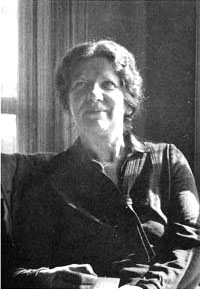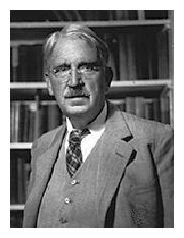Serendip is an independent site partnering with faculty at multiple colleges and universities around the world. Happy exploring!
Notes Towards Day 6 (Thurs, Sept. 15): Experience(s) and Thinking
 |
 |
I. coursekeeping
how many of your classmates' names do you (not!) know?
by 5 p.m. on Friday: your third 3-pp. paper is due, on access to education.
Our access maps seemed to be about "access to college,"
w/ BMC as the "end" of the journey.
When Jody asked us, "access to what?"--I heard her
problematizing our equation of education = college.
Dewey does this too (we'll get to him soon!).
Think not only about your access to education, but/and about what education gives us access to.
Re-consider Luttrell's stories: did her women have access to what Tompkins (for ex) doesn't?
Our own stories about this....
As you take on these really big questions, remember that
all the access maps as well as our conversations are sources.
We are all seeing the "edges of our own stories," as we listen to others.
These are large/general/abstract terms -- "access," "education,"
but your discussion of them should be concrete, anchored, specific.
You should make a claim that is clear and risky -- how far out can you push your idea?
by 8 p.m. on Sunday: in our on-line course forum, share w/ your classmates a
(paragraph) excerpt from your Friday night paper on the relationship between
access and education --and then an insight that arose for you, in reflecting on what you've written.
by classtime next Tues: read Chapter 2 of Paulo Friere's 1990 book, Pedagogy of the Oppressed
We'll also be conducting an in-class workshop on writing-and-revising,
so chose one of your last two essays (not your autobiography); you will be
paired w/ someone from the other class; when you send us your paper,
please also send a copy to your writing paper. Come to class having read
it for the claim/support/what interests/where you got lost. WE ARE NOT
CORRECTING GRAMMAR FOR ONE ANOTHER.
Serena -- Michaela
Jordan -- Rae
Kamila -- Amy
Jacqueline -- Elissa
Meg -- Samyuktha
Hayley -- Jia
Mfon -- Chandrea
Tanya -- Genesis
Jillian -- Samantha
Shannon -- Laura
Jess -- Pan
Nancy -- Sophia
Ellen -- Morgan
one other course-keeping matter: our visit to Parkway
will NOT be on Oct. 4, but Oct. 18--reflect on what
went into this (testing, etc...)
questions?
II. where we left off on Tuesday....
I'll read, let's talk a bit...
Mark Edmundson says,
"The aim of a good liberal arts education was once ... to see that 'we need not be the passive victims of ... "circumstances" .... but that by linking ourselves ... with the great we can become freer ... to be what we most want and value' .... one of the best things about democratic thinking is the conviction that genius can spring up anywhere .... genius helps us apprehend how malleable the present is."
Earl Shorris writes,
"The poor themselves led me in directions I could not have imagined .... 'You've got to teach the moral life of downtown to the children .... a moral alternative to the street' .... to enter the public world, to practice the political life, the poor had first to learn to reflect."
"'You've been cheated .... Rich people learn the humanities; you didn't. The humanities are a foundation for getting along in the world, for thinking, for learning to reflect on the world ... one of the ways to become political ... to negotiate ... to get power ... a more effective method for living in this society.'"
"coming into possession of the faculty of reflection and the skills of politics leads to a choice for the poor ... to get along in a society based on the game ... or they may chose to oppose the game itself ... adopt a moral view other than that of their mentors.... who wants to run that risk?"
If Edmundson and Shorris were in conversation,
what might they say to -- and ask -- one another?
What points of agreement/shared assumptions/vocabulary underlie both essays?
What does each of them think constitutes real knowledge/education?
Where does the "cultural capital" lie? How do they see the relation between
home/street and school? Do they recognize the kind of "splitting" Luttrell describes?
What are we learning, about class and differential access to education,
by reading and reflecting on their accounts of teaching?
III. for today, we asked you to read two texts,
Anzia Yezierska's “College” and John Dewey's "Experience and Thinking" --
the first fictional, the second philosophical: so let's start by talking about genre!
* what is Dewey saying?
shout out key words or phrases
let's create a quilt of what he is saying
are there fuzzy/knotted spots in the quilt?
* put this up against Yezierska
[on pause time! --want a few moments to write??]
* put this up against your own life ....
(when was experience a teacher for you?)


